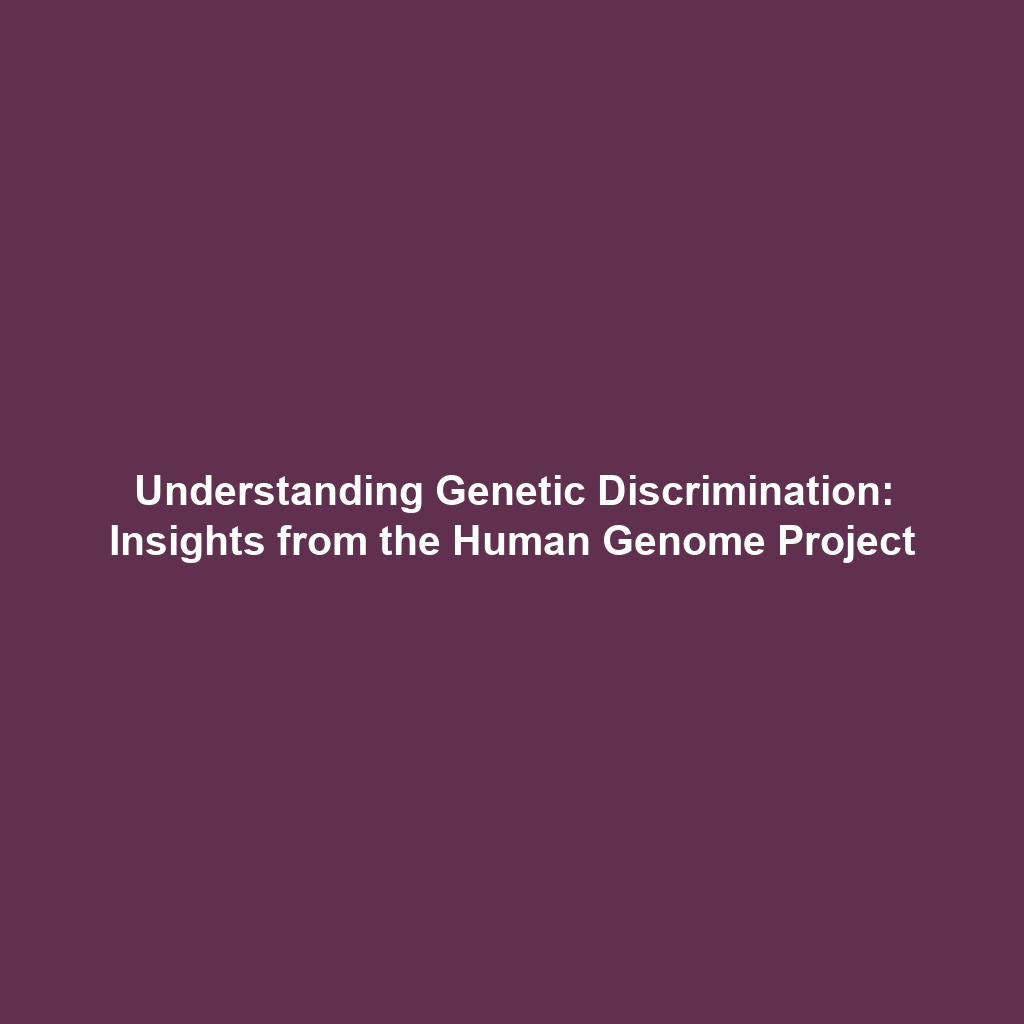Sequencing Techniques in the Human Genome Project
Introduction
Sequencing Techniques are fundamental in the exploration of genetics, functioning as the backbone of the Human Genome Project (HGP). These methods enable researchers to decode the billions of base pairs that comprise human DNA, providing invaluable insights into human biology, disease, and evolution. As we delve deeper into the techniques that fueled the HGP, we uncover their significance in advancing genomics, healthcare, and personalized medicine. Understanding these processes is essential for comprehending the future trajectory of genetic research and its societal implications.
Key Concepts
Understanding Sequencing Techniques
Sequencing Techniques involve methodologies that determine the precise order of nucleotides within a DNA molecule. Prominent techniques in the field include:
- Sanger Sequencing: The first widely used method, known for its accuracy and simplicity, is instrumental in genome mapping.
- Next-Generation Sequencing (NGS): A group of advanced technologies that allow massive parallel sequencing, significantly reducing time and cost while increasing throughput.
- Third-Generation Sequencing: Advanced methods that provide longer reads, enhancing the ability to analyze complex genomes.
These techniques collectively played pivotal roles in the Human Genome Project, enabling scientists to sequence the human genome efficiently and accurately, ultimately leading to breakthroughs in genetics and medicine.
Applications and Real-World Uses
Sequencing Techniques have transformed the landscape of biotechnology and healthcare. Their applications include:
- Medical Diagnostics: Sequencing plays a crucial role in identifying genetic disorders, facilitating early diagnosis and targeted treatments.
- Personalized Medicine: Customizing treatments based on an individual’s genetic makeup to enhance efficacy and reduce side effects.
- Genomic Research: Unlocking the genetic basis of diseases and guiding research in evolutionary biology and pharmacogenomics.
Overall, the applications of Sequencing Techniques in the Human Genome Project have made significant contributions toward understanding genetic diseases and improving patient outcomes.
Current Challenges
Despite the advancements, several challenges persist in utilizing Sequencing Techniques within the context of the Human Genome Project:
- Data Management: The enormous quantities of data generated pose challenges in storage, analysis, and interpretation.
- Ethical Concerns: Issues surrounding privacy, consent, and potential misuse of genetic information need addressing.
- Technical Limitations: While NGS and other methods enhance capability, they may still struggle with certain complex genomic regions.
Future Research and Innovations
The future of Sequencing Techniques is promising, with ongoing research leading to innovative breakthroughs. Key areas of interest include:
- Single-cell Sequencing: Techniques advancing our understanding of cellular heterogeneity in tissues.
- Long-read Sequencing: Innovations aimed at producing longer reads that improve the accuracy of sequencing complex genomes.
- AI and Machine Learning: The integration of AI to analyze genomic data more efficiently and uncover novel insights.
These innovations will significantly impact the ongoing work related to the Human Genome Project and its objectives.
Conclusion
Sequencing Techniques are vital to the progress of the Human Genome Project, influencing our understanding of human genetics, medicine, and biology. As we explore these methods’ applications, challenges, and future innovations, it becomes clear that continued research in this area is essential. For further reading on related topics, such as genomics and personalized medicine, please visit our resource pages.

